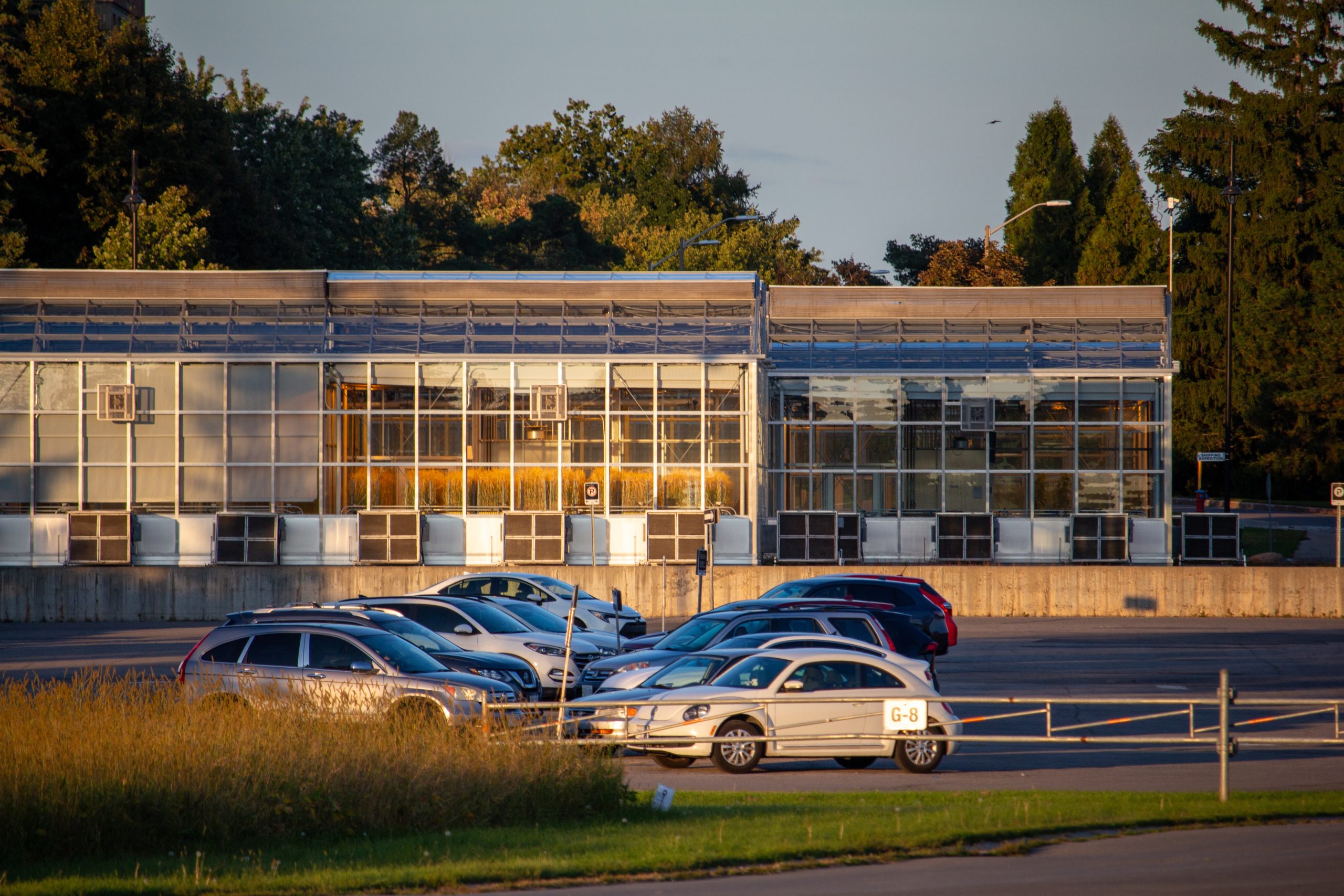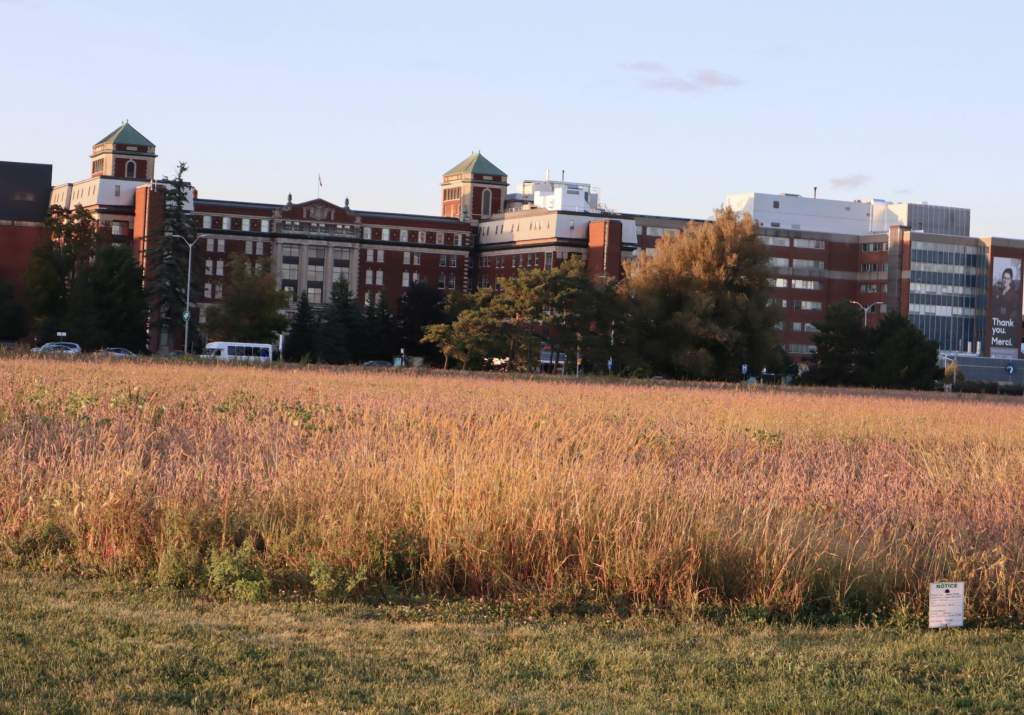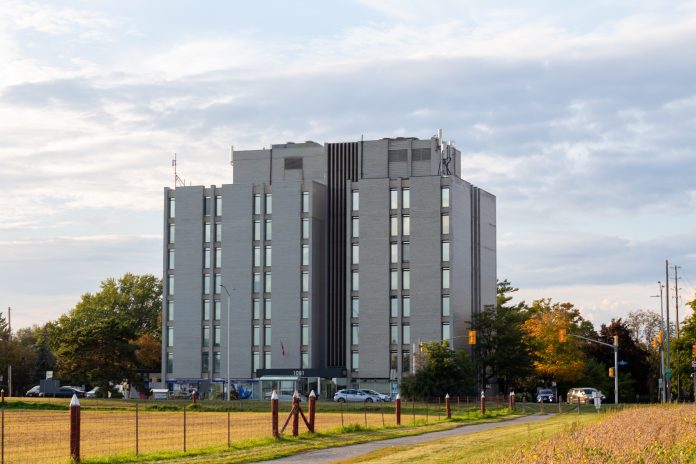A controversial Carling development proposal has been approved by Ottawa’s planning committee for a second time despite strong pushback from the community.
After its first approval on Aug. 16, the matter was supposed to go before city council, but the file never made it there after it was revealed Agriculture and Agri-Food Canada (AAFC), alongside the National Capital Commission (NCC), weren’t invited. That meant the decision had to be revisited.
Proposed by Taggart Realty Management, the development proposal involves the construction of two residential towers of 16 and 27 storeys at 1081 Carling Ave, near the Civic Hospital Campus.
A report produced by the AAFC shared concerns over how the building’s shadows could impact research at the Central Experimental Farm, located across the street.
Federal officials from the AAFC attended the second planning committee meeting on Sept. 20, and were blunt with their concerns.
“Our researchers need to work in a controlled environment,” said Stefanie Beck, deputy minister of AAFC. “This requires predictable levels of sunlight, moisture, climate and soil. The research projects on this site cannot be easily moved elsewhere. If you do allow this development or go ahead as is, you should know that millions of dollars and decades of research will be compromised.”

Roughly 28 hectares of land in question would lose about 70 days of sunlight per year. A greenhouse located near the Canadian Food Inspection Agency Building would also lose light because of the shadows.
The impacted fields grow special varieties of wheat, soybeans, barley, corn and oats, which helps researchers better understand the effects of climate change on crops.
If the development goes through and impacts the farm’s research, Beck said the AAFC would not rule out taking legal action.
“Our concerns today should also be understood to extend to future development plans around the farm,” she said. “We are hoping not to have to take any such action, but we are losing access to research facilities that cost millions of dollars. If we’re being asked to mitigate, there’s a cost to that.”
Theberge Homes has filed a different proposal with the city that would see a pair of 24-storey highrises and a 32-storey tower constructed at 780 Baseline Rd. on the corner of Fisher Avenue, just south of the Central Experimental Farm. While the shadow impact there is not as serve, it too would decrease the farms useable land.
Karen Wright, president of the Civic Hospital Neighborhood Association, said they are concerned that as Ottawa continues to build up, more development proposals will pop up around the farm. She called the planning committee’s decision “shocking.”
“If it’s not viable for research they won’t have any choice but to pack up their bags and move the research, which will mean the loss of decades of valuable work,” she said. “It would be quite difficult to replicate the conditions. It could be the demise of the farm.”
Planning committee voted nine to three in support of the development. It will go before city council unamended for final approval on Sept. 27.
A directive from River Ward Coun. Riley Brockington aimed to ensure that city staff work with AAFC and the NCC to assess how future developments could impact the experimental farm. His motion to limit the height of the towers to 14 storeys, however, was defeated in an eight to four vote.
Kitchissippi coun. Jeff Leiper, who is also the planning committees chair, said that, ultimately, the proposal meets all the guidelines set out by the city.
“I’m going to caution that this committee’s job has been very strictly given to it under the Planning Act, which is to consider the merits of a rezoning application under the policies and guidelines that guide development in Ontario,” he said.
“The federal minister may speak to us about the impact that our planning decision might have on their farm, but it doesn’t affect the decision that we, nonetheless, need to make, which is on the planning merits of the file,” Leiper added.

Taggart vice-president of development Derek Howe told reporters he was happy with the committee’s decision but declined to comment further.
During the meeting, Howe said that Taggart has complied with all policy procedures throughout the process.Another representative added the company has spent 24 months on the project to date, which included four rounds of technical comments with staff.
Wright said she hopes councillors will review what researchers said during Wednesday’s meeting and make a “smart decision.”
“I think it’s going to take the will of the people to impress upon their councillors and the mayor to act in a different way than the business as usual,” she said. “It’s about good planning. Causing irreparable harm on a Canadian research facility that’s producing food for Canadians is not good planning; it’s not reasonable.”
With files by Mia Jensen.
